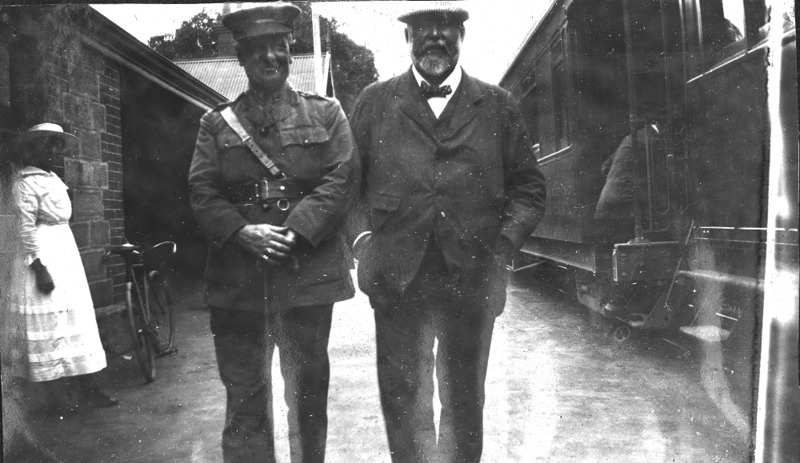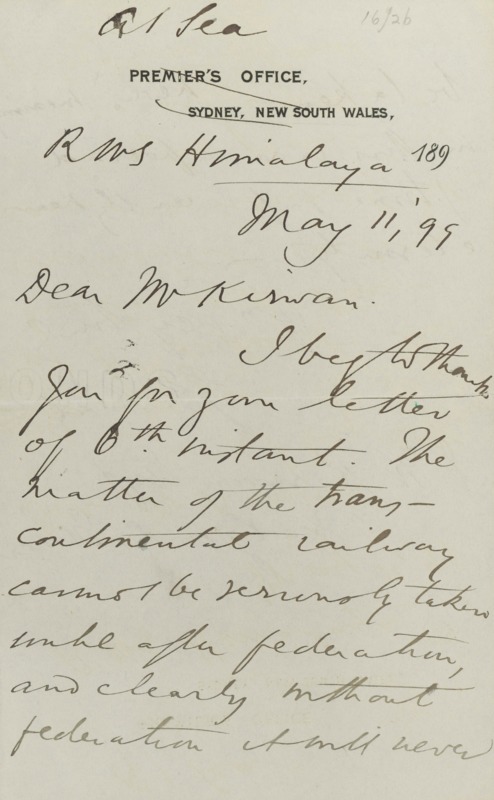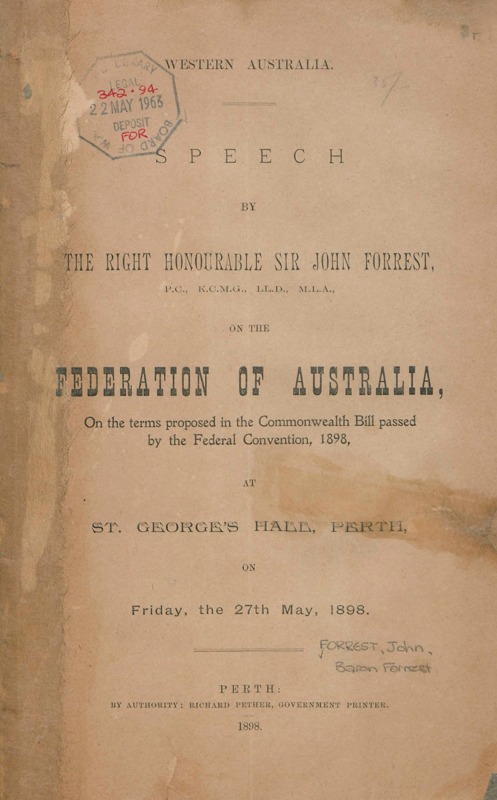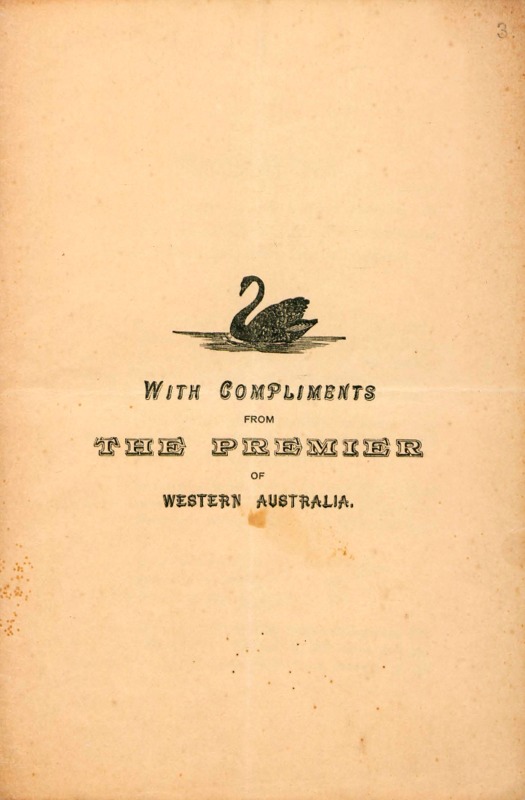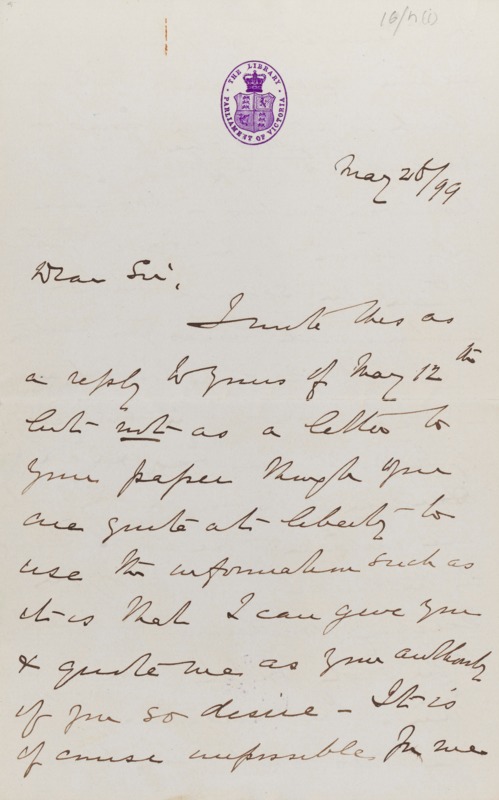Making a Deal
Complex deals were an integral part of the Australasian Constitutional Conventions of the 1890s. Western Australia was able to negotiate a deal to phase out the protective tariffs it had imposed on the importation of goods from the eastern colonies of Australia over a ten year period, rather than immediately abandon them on entering the Federation. This was enshrined in the Constitution as Clause 95. The other key concession Forrest pushed for was a guarantee that the Commonwealth would build a railway to link Western Australia with the rest of the nation.
Politicians from the eastern colonies were reluctant to grant any further concessions to Western Australia. While happy to pledge to eventually build a trans-continental railway, they refused to make the construction of the railway a condition of entry to the Commonwealth. The response of Alfred Deakin, the Victorian politician prominent in the federal movement who became Australia's second Prime Minister, was encouraging but noncommittal.
The reality that Western Australia needed the rest of the continent more than it needed Western Australia is shown in a letter to John Kirwan, editor of the Kalgoorlie Miner, from George Reid, the Premier of New South Wales and a future Prime Minister of Australia.
May 11, '99
Dear Mr Kirwan I beg to thank you for your letter of 6th instant. The matter of the trans-continental railway cannot be reasonably taken until after federation, and clearly without federation it will never be taken - 'never' meaning in this case a period of time sufficiently near eternity - Yours very truly
G.H. Reid
In the end, John Forrest's appeals for further concessions were rejected, and realising Western Australia would never get a better deal, he campaigned in favour of Federation. While some people, like Frederick Vosper, campaigned for the 'No' case on the grounds that it was a poor deal, most Western Australians feared they would be offered fewer concessions if they did not enter the Commonwealth as an original State.
The Colonial Secretary Joseph Chamberlain made it clear that a united Australian continent was the preferred outcome for Britain by putting pressure on the Western Australian Parliament to allow the referendum to be held. Meeting with Colonial delegates in London in 1900 to discuss the proposed Australian Constitution, Parker, the Western Australian representative sent by Forrest to observe proceedings, watched as the Australian Constitution Act was sent through the House of Commons, passed and sent for royal assent even before Western Australia had agreed to hold a vote on the issue.
Focus questions
- Why was the transcontinental railway so important to Western Australia?
- For what reasons did Western Australia need the Eastern States more than it needed Western Australia? Has that changed over time?
- Negotiation was an important part of the decision for Western Australia to become part of the Federation. What is negotiation and why is it a vital role in the process?
Key words
Campaign
Constitution
Negotiation
Trans-continental railway
Concessions
Delegates
Australian Constitution Act
Further reading
Australian Government Federal Register of Legislation - Commonwealth of Australia Constitution Act
Museum of Australian Democracy - Road to Federation

